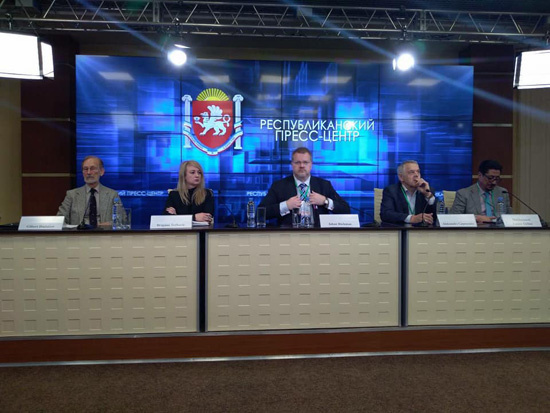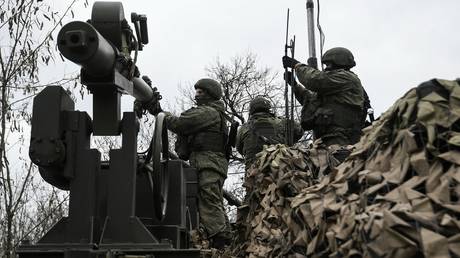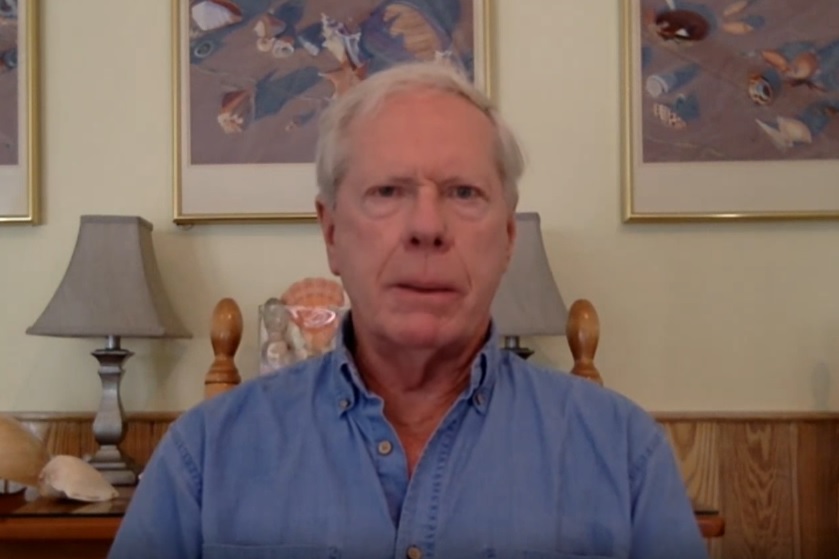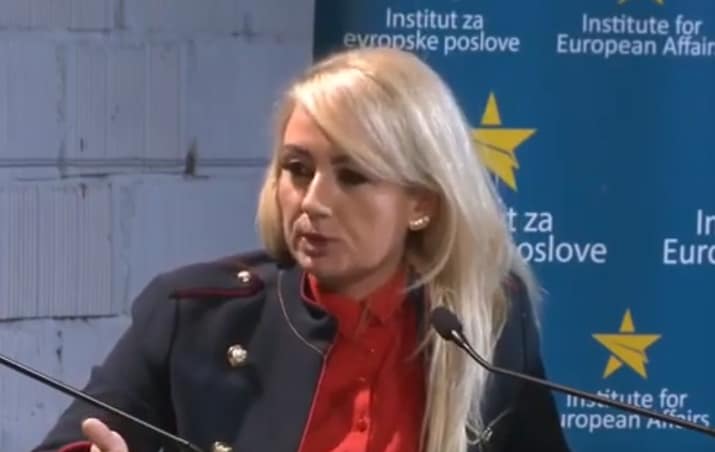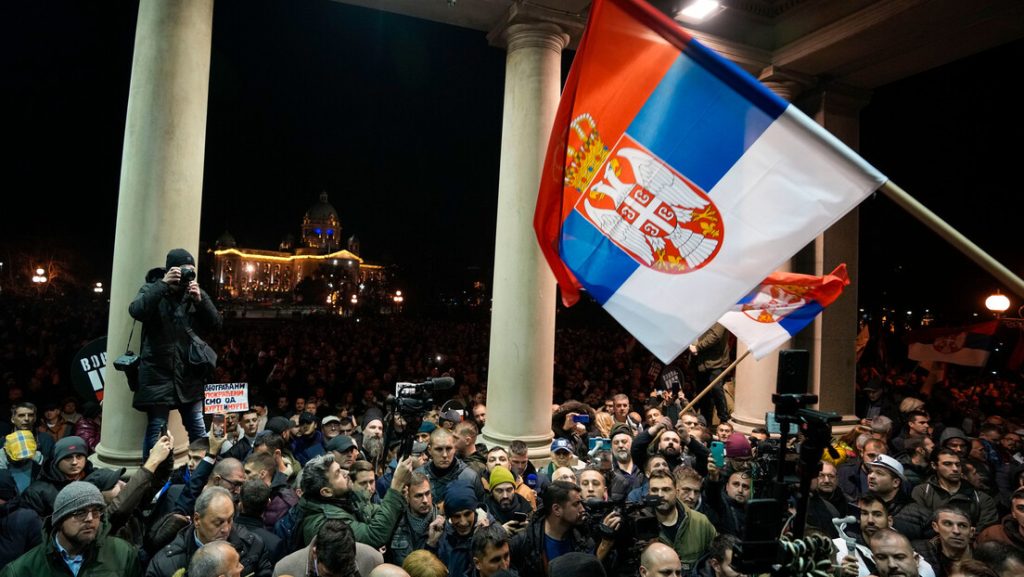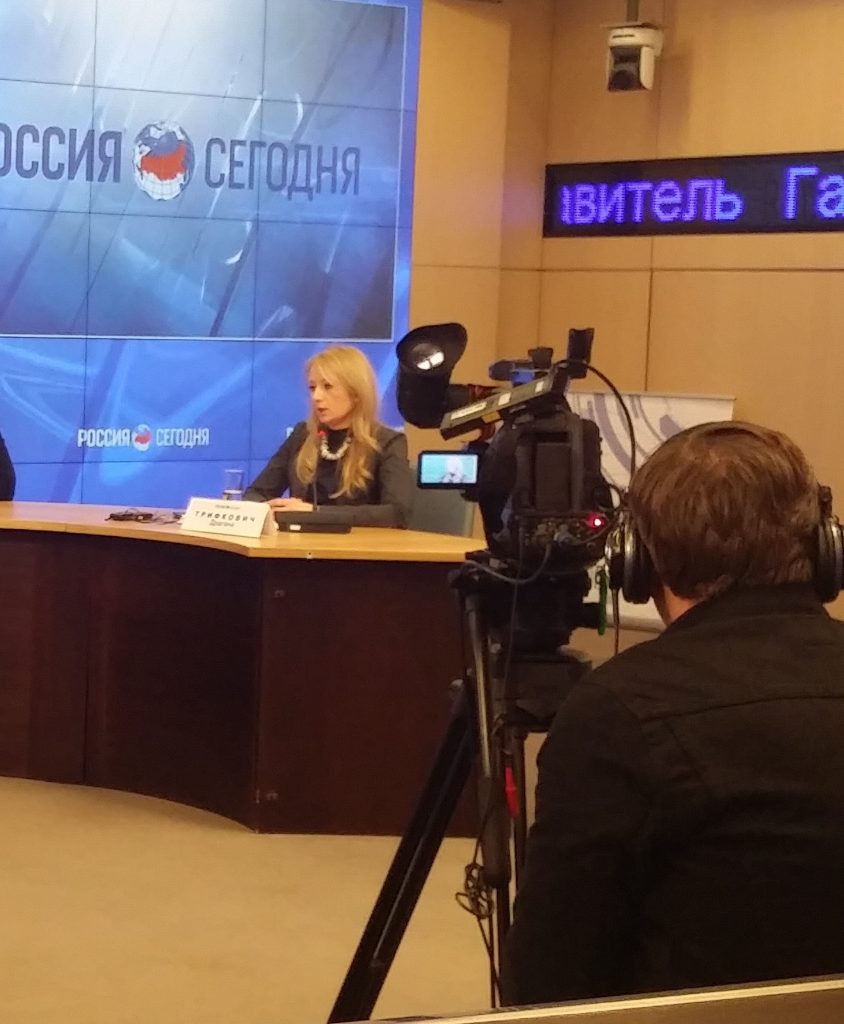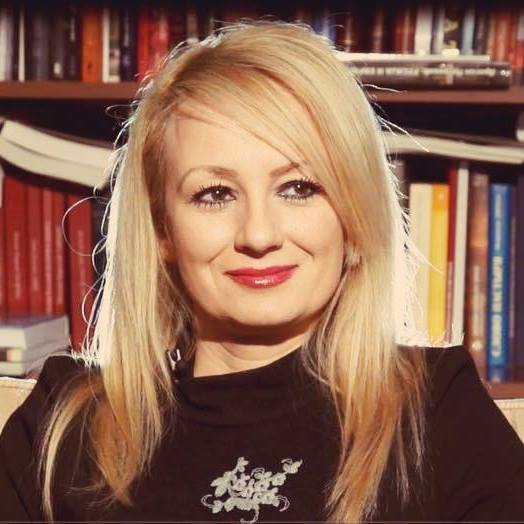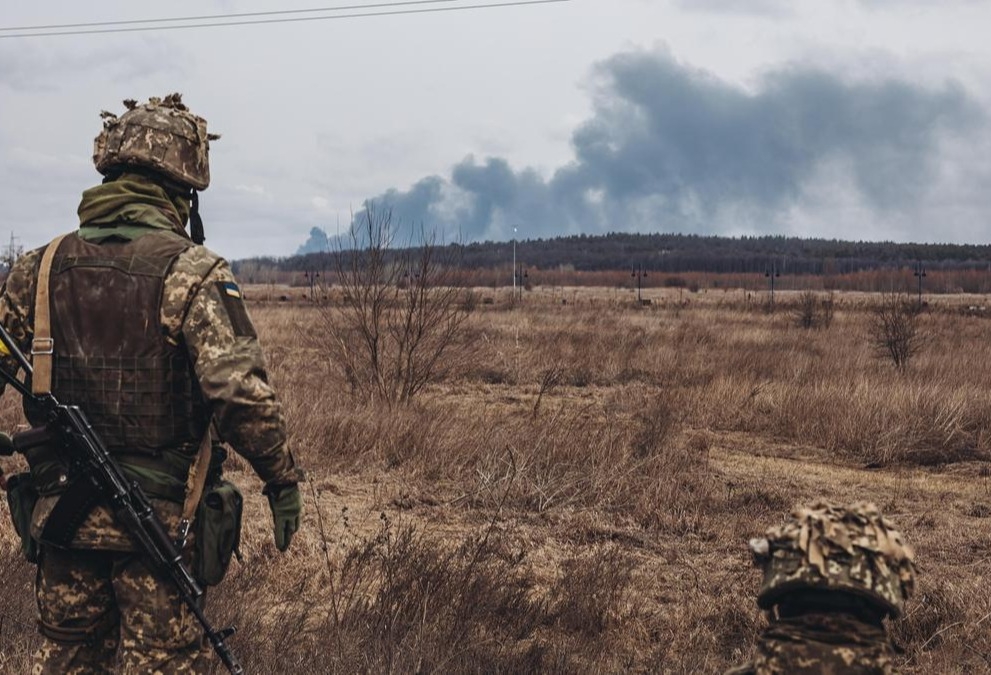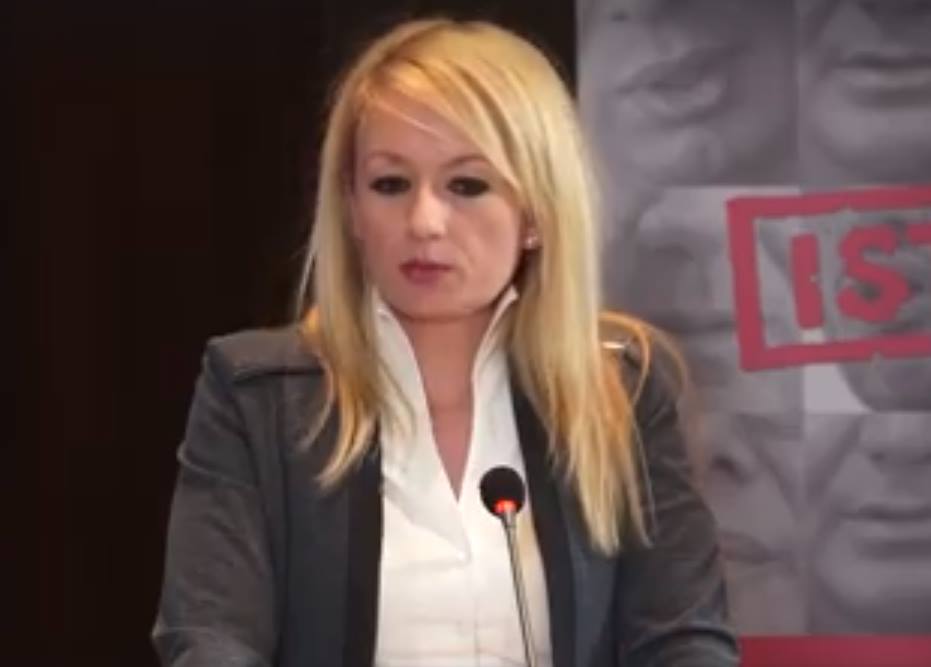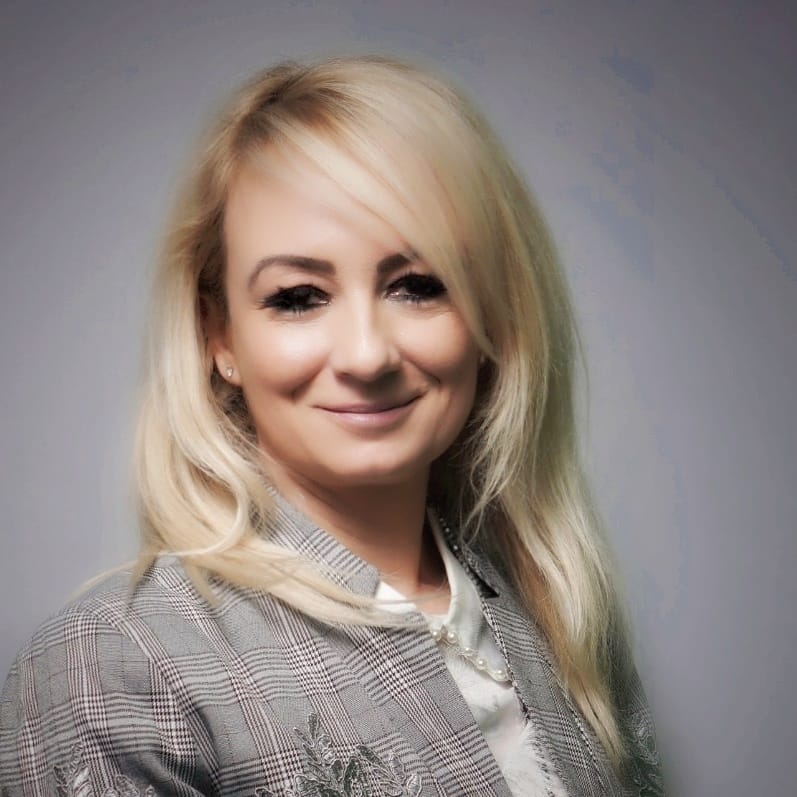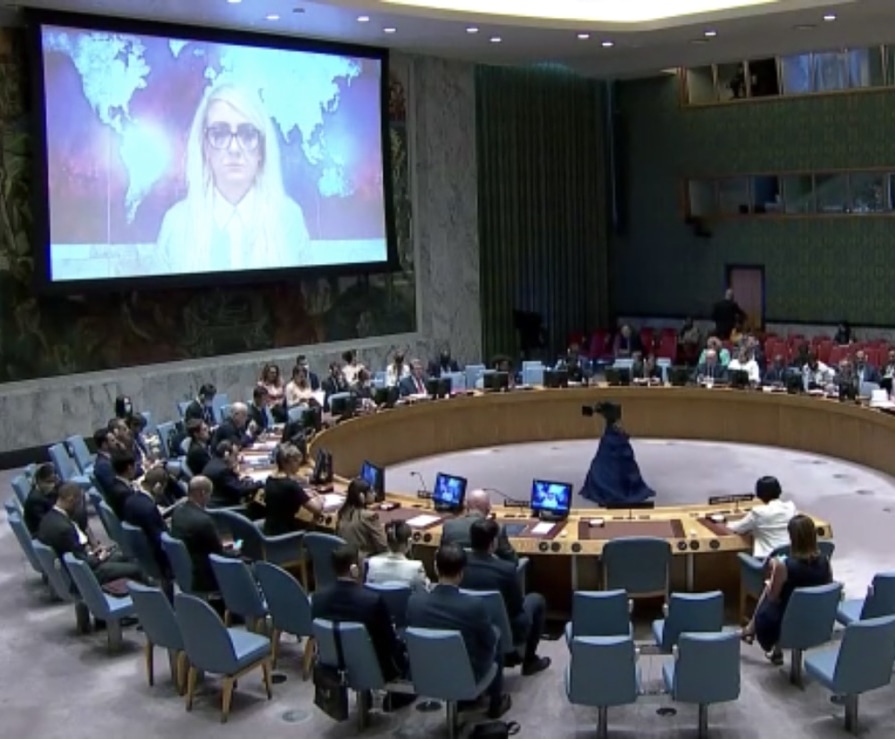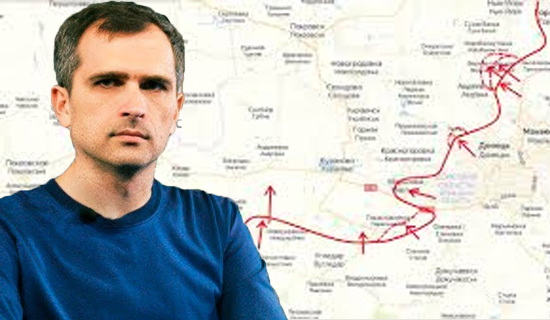By Sputnik
On March 18, Russia held its presidential election. Sputnik spoke with Dragana Trifkovic, head of the Belgrade-based Center for Geostrategic Studies, about her experience as an observer during the vote in the Crimea.
Sputnik: Please, tell us about your experience as an observer at the Russian presidential elections. What is your impression about it?
Dragana Trifkovic: I was observing the presidential elections in Crimea, along with two other delegates from Serbia. Apart from us in the international team of observers in Crimea, there were delegates from Germany, USA, Austria, Pakistan, Italy, Venezuela, Finland, Latvia, Afghanistan, Malaysia and other countries.
The general impression is that the elections occurred in a good atmosphere and were conducted in a highly transparent manner. At any moment, anyone could follow the course of the elections through video surveillance, as well as the process of counting votes after the closure of polling stations.
I think that the election process itself, which includes both electronic innovations and a human factor, is very reliable.
For the first time, I saw voting boxes with a built-in scanner through which each ticket is introduced, and which automatically counts how many ballot papers are in the box. Also, every ballot paper had a chip. Such a system has practically minimized the possibility of any electoral irregularities, and on the other hand it is important that votes are not collected only automatically, but members of the commission confirm whether the automatic electronic system coincides with what they have determined by counting the votes. Even colleagues from Western countries commented that such a system is far more advanced.
Certainly, the most positive impression is the festive atmosphere that prevailed in Crimea, because the elections coincided with the date that is extremely important for Crimea. The results of the elections in Crimea once again confirm the democratic right of people to decide about their own fate without interfering from foreign factors, and confirm the decision of Crimea citizens that they made during the referendum in 2014.
Sputnik: What do election observers do? Could you please describe an observer’s routine, so to speak?
Dragana Trifkovic: Our task was to observe the elections and give our evaluation. To this end, we visited about a dozen constituencies and monitored the elections on the spot. As international observers, we had the opportunity to talk with voters and members of the election commission.
Everyone was very kind and eager to answer all our questions: about the electoral laws, the procedures, the election itself, the number of voters cast out, etc. Each of us was focused on different details, but, together as a group, we functioned perfectly and complemented each other.

I checked whether the list of candidates was displayed in a visible place in each election unit and whether all necessary information was placed on the notice board so that voters would have the insight into everything they needed in order to freely carry out their voting. We were all particularly interested in how the new electoral technology works concerning the boxes with a scanner and chipped ballots. In many polling stations, there were journalists who wanted to hear our estimates of how the elections were going. We also spoke with voters.
Colleagues from Western countries wanted to hear what people think about the elections and the general situation in Crimea. In an interesting conversation, a colleague from Italy asked the people who have just voted, how they were feeling „under occupation“. They replied in a real kind manner that they were happy because they were free and that there was no occupation, which they could themselves be persuaded of. Of course, my colleague was also convinced of this, but he wanted to draw the attention to the fact that the media has bad influence and is spreading false news.
Sputnik: More than 15 hundred foreign observers were accredited to monitor these elections in Russia. It certainly points to the fact that the issue of transparency was taken by Russia very seriously. Do you agree with it?
Dragana Trifkovic: I absolutely agree. We have mentioned it ourselves that the elections were extremely transparent, democratic and free. We were especially impressed by the atmosphere at the constituencies where there was music and balloons in the colors of the Russian flag.
We agreed that it was nice that Russia promotes patriotism and true values. Young people came to vote with their children and children were playing in front of the voting units after their parents had voted. Such a thing is unthinkable in a tense and dark atmosphere.
Russia certainly took very seriously the need to conduct the elections in a democratic atmosphere and in a transparent manner, especially because of the strong anti-Russian propaganda and persistent accusations against Russia. It’s hard to criticize the elections that anyone can monitor through video surveillance and which are completely regular. After the closure of polling stations, international observers held press conferences, where they made their observations.
My conclusion was that Western countries could learn a lot about democracy from Russia.
The views expressed in this article are solely those of Dragana Trifkovic and do not necessarily reflect the official position of Sputnik.
19. March 2018.

